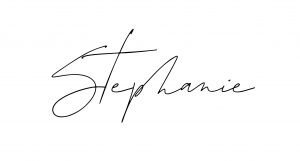
Have you ever worked in an organization where upper management lacked a level of self-awareness? And that self-awareness then bled into the rest of the organization?
One of the truest things we can do for those we lead is to know ourselves. Self-awareness is when you know and understand your character, motivation, personality, preferences, desires, and values. Once you know that information, you can then learn how these influence your decision making and your interaction with others.
Self-awareness is the starting point to being effective at work and an effective leader.
We all have a view of ourselves. However, our own upbringing and biases often cloud our view of ourselves. And this is why it is important to take the time to gain a greater level of self-awareness.
How Knowing Yourself Translates to the Workplace
When you take the time to discover more about yourself, it can translate directly to the workplace.
1. You gain a greater understanding of how you function.
2. You gain a greater understanding of your strengths and weaknesses.
3. You can set life and career goals that align with who you are.
4. Leaders who have a higher level of self-awareness are said to be higher performers.
5, As you learn more about yourself and others, you can adjust how you lead others in light of their personality.
6. You become more competent in your decision making ability and will be seen as a competent, confident leader.
Self-Assessment Tools
There are many assessments available that give you the ability to understand yourself better, from your personality type, to how you deal with stress, to discovering your strengths. These are not to be taken in a vacuum, but a tool in your tool box to understanding yourself. I talk about 3 specific assessments in my book, So Your Boss Can’t Lead?
The first is the Myers–Briggs Type Indicator personality inventory. The assessment asks a series of questions that helps you determine your personality type. There are sixteen personality types. The assessment tells you how you view the world (introvert or extrovert), how you take in information (sensing or intuition), how you make decisions (thinking or feeling), and the structure of how you view the outside world (judging or perceiving). (humanmetrics.com)
Most people think that if you are extrovert that means you are outgoing. In reality, if you are an extrovert it means you gain energy when around others. Introverts gain energy often by being alone.
The second assessment is Strengths Finder 2.0. In Strengths Finder 2.0, the assessment shows your top five themes, or strengths, out of thirty-four themes. This assessment provides an accurate view on your strengths as you think about them in light of your life. (GallupStrengthsCenter.com)
The third assessment is Keirsey Temperament Sorter. In David Kiersey’s book, Please Understand Me II, he explains the four main temperaments as he ties in the history of all the assessments of personality, and sums them up together. This book allows you to look at your own temperament and then how your temperament interacts with the others. (Keirsey.com).
There are many more assessment tools available, but I don’t want to inundate you with them. If you haven’t taken one, pick one, take it, and learn more about how you function. You will thank yourself for taking the time to do it.
I would love to know, have you taken an assessment and what did you learn about yourself?

I empower business leaders, creatives, and entrepreneurs to develop their leadership skills, develop workflows that are beneficial for them, and to create work-life integration so they live a life they love. Set up a free 30 minute consult if you are ready to up your leadership game. Click Here.
If you are a leader or emerging leader who wants to lead with meaning and purpose, then let’s connect. Join me at the Emerging Leaders Network (a community on Facebook) community designed for leaders to collaborate on best practices and discuss issues to become great leaders.

Stephanie German is a leadership coach and consultant, author, and adjunct professor. She holds a master’s degree in organizational leadership and loves giving back to her community in a variety of ways. When she’s not coaching clients or writing about leadership, Stephanie is usually headed to the mountains or the beach with her family, drinking savory wine, or working on the latest project with her husband. Stephanie’s greatest desires are to raise up the next generation of leaders while raising her own children to be strong, independent, and brave. She lives in Fresno, California with her husband Blake and her three spunky daughters, Cara, Kinsey, and Peyton. She is the best-selling author of So Your Boss Can’t Lead?
